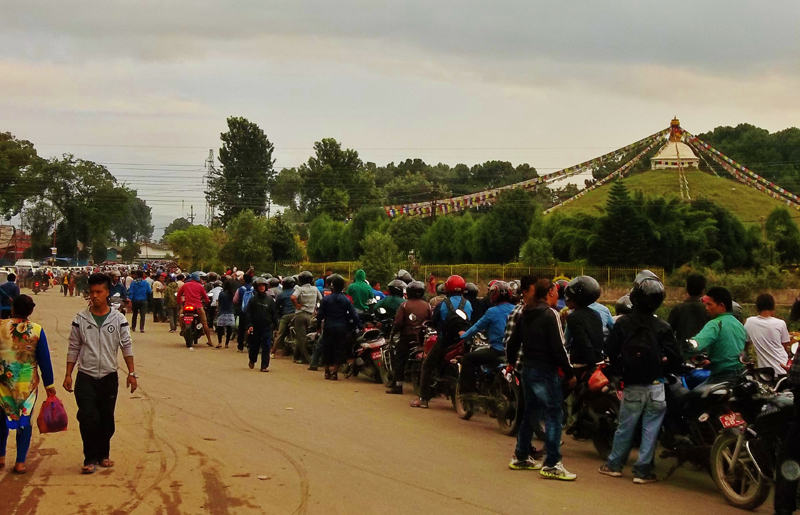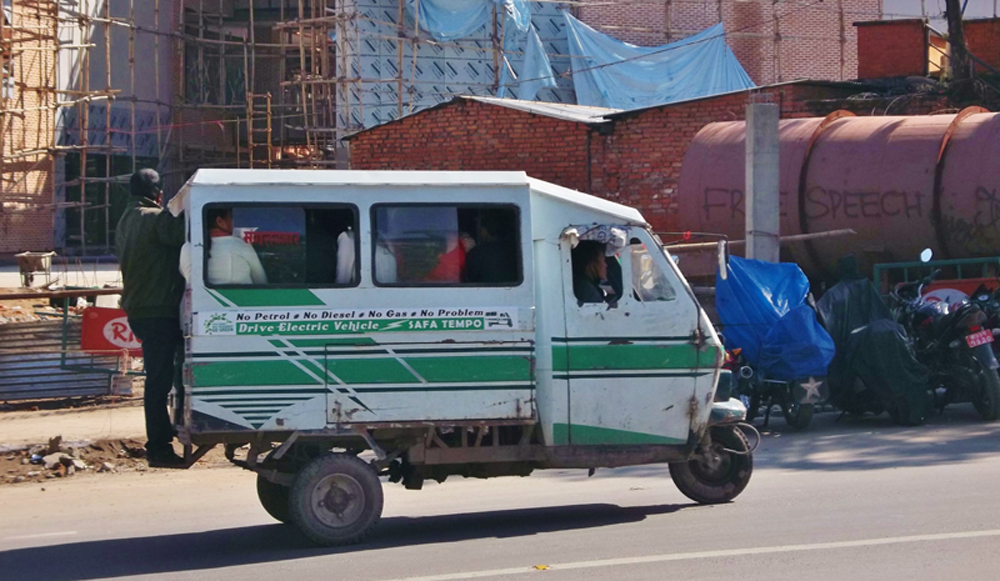Border blocks in Nepal could lead to humanitarian crisis
After months with limited access to fuel, Nepal’s people are suffering as pressure on essential services increases. BMS World Mission workers provide updates and prayer points
 Nepal’s two major earthquakes earlier this year shattered the lives of millions of people. Now nationwide fuel shortages, caused by over two months of blockades along the border with India, mean life for people in Nepal is even more precarious.
Nepal’s two major earthquakes earlier this year shattered the lives of millions of people. Now nationwide fuel shortages, caused by over two months of blockades along the border with India, mean life for people in Nepal is even more precarious.
“It feels like it’s getting serious now,” says Simon Hall, a BMS World Mission worker in Kathmandu, Nepal. “The Nepal Oil Corporation has said to stop queuing – there’s nothing left to give. Loads of schools are closed because parents can’t get their kids there.
“It’s not just fuel for transport – it’s fuel for generators too. If hospitals can’t run generators things get bad.”
Taxi drivers in Kathmandu have been queuing for up to five days for the chance to refuel their vehicles to continue earning a living and feeding their families. People are cramming into dangerously overcrowded buses to get around.
One such bus, which had many people riding on the roof because of the lack of transport available, skidded off a road last week killing 30 people and injuring many more. The lack of fuel is also obstructing efforts to reach rural survivors of the earthquakes with the supplies they need.
 All transport in Nepal now is even more overcrowded than usual because of the blockades
All transport in Nepal now is even more overcrowded than usual because of the blockades
In addition to a lack of fuel, Nepal is also now reportedly running out of medicine and the price of basic necessities has soared. According to The Guardian, Nepal is suffering from its worst ever economic disaster. The blockade has cost the country over one billion dollars.
“There’s no end to it,” says Alan Barker, a BMS worker in Surkhet, in the Mid-Western region of Nepal. “India is blaming the situation on Nepal, Nepal is blaming it on India. It’s very complicated, and three months down the line nothing seems to have been done about it.
“Nepal is used to moving from one crisis to another. There’s not a great hue and cry, there’s not great protest like in other countries. People just try to get by – building little wood stoves outside because there is no gas to cook with.
“The blockade is affecting the whole country.”
The protests began after the Government released its new Constitution. There are mixed reports as to who is responsible for the blockade. Some say it is the result of groups opposed to the Constitution in the Madhesh region (the southern region of Nepal, which borders India).
It is reported that those responsible for the blockade are unhappy with the constitution and are demanding greater representation in parliament and a re-drawing of the provincial boundaries. Many in Nepal, however, would say the blockades are the fault of the Indian Government.
“The general consensus here is that this is the fault of India,” says Simon. “If you were to speak to anyone in Kathmandu, that would be their opinion.”
There are no signs of the border crossings opening up soon, and even if they do it will take a long time for things to begin running smoothly again in Nepal.
BMS and its workers in the country would ask you to pray for the situation – that talks will begin, that the conflict will be resolved peacefully and fairly, and that this situation will not descend into a humanitarian crisis as the country fears.
Please pray for Nepal
- Pray that the conflict over the new Constitution will be resolved
- Pray for wisdom for Nepal’s Government and for its relations with India
- Pray for the borders to reopen so that people can get access to the resources they need
- Pray for those affected by the earthquake, whose problems have been compounded by the fuel shortage. Pray that they would get the resources they need before the cold winter sets in
If you would like to support BMS' long-term rehabilitation work in the country you can do so by giving to the My Father’s House appeal.
This article first appeared on the website of BMS World Mission and is used with permission.
BMS World Mission, 13/11/2015